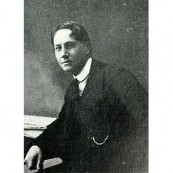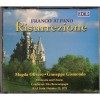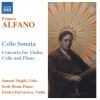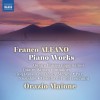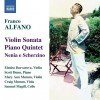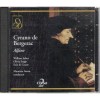| Country: | Italy |
| Period: | il Verismo |
Biography
Franco Alfano (8 March 1875 – 27 October 1954) was an Italian composer and pianist. Best known today for his opera Risurrezione (1904) and above all for having completed Puccini's opera Turandot in 1926. He had considerable success with several of his own works during his lifetime.
Alfano was born in Posillipo, Naples. He attended piano lessons given privately by Alessandro Longo, and harmony and composition respectively under Camillo de Nardis (1857–1951) and Paolo Serrao at the conservatory San Pietro a Majella in Naples. Later, after graduating, he pursued further composition studies with Hans Sitt and Salomon Jadassohn in Leipzig. While working there he met his idol, Edvard Grieg, and wrote numerous piano and orchestral pieces.
From 1918 he was Director of the Conservatory of Bologna, from 1923 Director of the Turin Conservatory, and from 1947 to 1950 Director of the Rossini Conservatory in Pesaro. Alfano died in San Remo.[
He completed his first opera, Miranda, still unpublished, for which he also wrote the libretto based on a novel by Antonio Fogazzaro in 1896. His work La Fonte Di Enschir (libretto by Luigi Illica) was refused by Ricordi but was presented in Wrocław (then Breslau) as Die Quelle von Enschir on 8 November 1898. It enjoyed some success.
His three most important operas begin with Risurrezione in 1904. It was based on Tolstoy, and was later sung by Magda Olivero.
Cyrano de Bergerac followed. This based on the famous play by Edmond Rostand and composed to the French libretto by Henri Cain. It had its Italian version premiere in Rome in January 1936, and its French version premiere in Paris four months later. It was recently revived by the Kiel Opera (Germany), the Montpellier Radio Festival (France) and the Metropolitan Opera, New York, starring Plácido Domingo in the title role.
In 1921, La Leggenda di Sakùntala appeared, and while it was successful enough to have Arturo Toscanini recommend Alfano to complete Puccini's posthumous Turandot, the performance materials were thought destroyed in an air raid during the Second World War. Alfano reconstructed it in 1952 as Sakùntala, after Abhijñānaśākuntalam (The Recognition of Sakuntala), the Sanskrit play by Kalidasa. Subsequently, the original version was recovered in 2005, with the two versions available for performance today. The second version of Sakùntala will be performed in New York City by Teatro Grattacielo in the fall of 2013.





